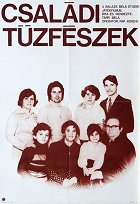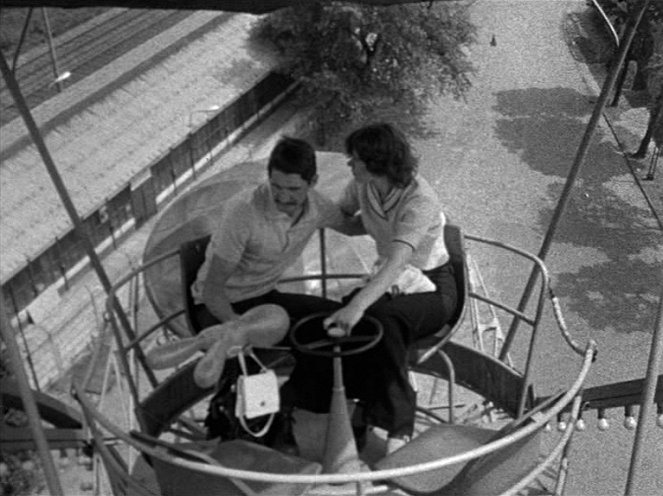Regie:
Béla TarrDrehbuch:
Béla TarrKamera:
Ferenc PapBesetzung:
László Horváth, Lászlóné Horváth, Gábor Kun, Gábor Kun ifj., Gáborné Kún, Jánosné Szekeres, József Korn, Irén Rácz, Jánosné Oláh, Krisztina Horváth (mehr)Inhalte(1)
A classic documentary-feature film of the "Budapest School" describes in close-ups a young couple in crisis situations, their circumstances and their breaking up. Irén and her little daughter, Krisztike are squeezed in a suburban room-and-kitchen flat, which they have to share with four relatives of her husband, now in the army. In this impossible small place every tiny problem ends in a scathing quarrel. Irén's father-in-law makes his son jealous and turns him against her. Irén breaks into a shabby temporary flat, hoping that with the child she will not be dislodged. They are convinced that a flat would solve all their problems. (Verleiher-Text)
(mehr)Kritiken (1)
The camera slowly and smoothly captures the faces of people sitting and squeezing around the table. Three generations at one table. The oldest and the only one provided for talks about how he had to spend his youth as a deserter fleeing from Horthy's and Nazi soldiers and police, about the luck that young people have in being able to work in peace, save, have children, and raise them according to good old principles. The camera just as easily pans to the TV in the background, speaking in the current politically coded empty speech about the same thing. After this scene, there is one in which a young husband, unwilling to be cramped in a small apartment with his wife and the rest of the family, let alone sleep with her, would rather (semi)rape another woman outside. The film is about older generations of Europeans who saw the fulfillment of life in just such a life, one that could be characterized as the "family hearth" (meaning work, because in the past there was always a threat of brutal unemployment; saving diligently for saving's sake; getting married because that is just how it is and will be, etc...). The film is about younger generations who also want to try it, but due to external conditions (here actually the only one - the inability to find their own housing), they have no chance to fulfill this ideal, which leads to many frustrations for them. The irony is that even when this obstacle of a happy life is eventually overcome, happiness still does not come - this is what the subsequent film The Prefab People is about. These two films show the abandonment of older materialistic values by the so-called "post-industrial" society.
()

